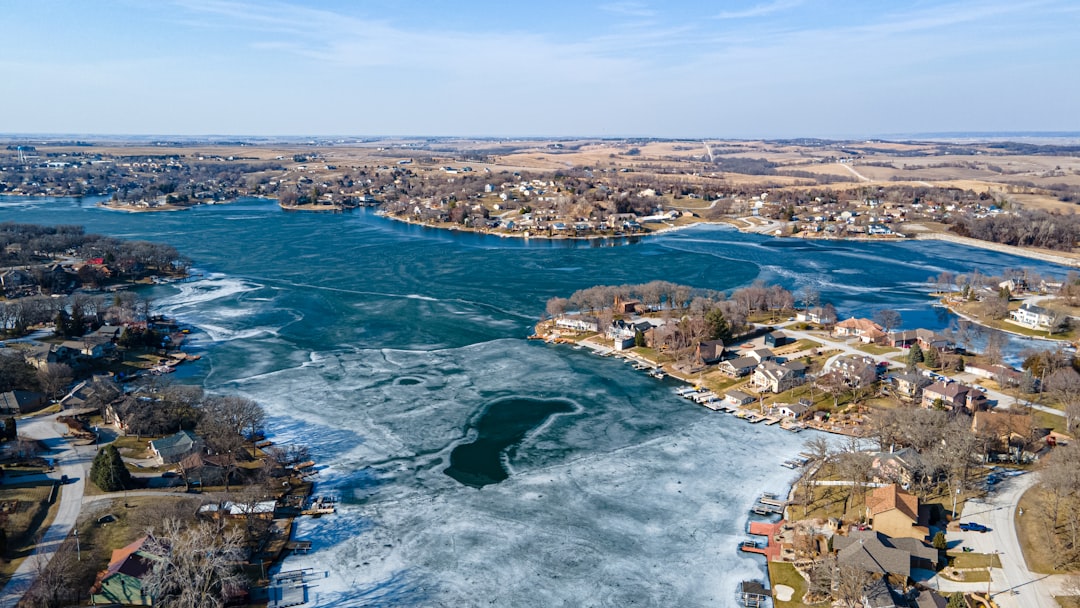Rural Nebraska residents face frequent spam calls due to lax regulations and advanced urban technologies. To combat this, Nebraskans can register on national "Do Not Call" lists, use blocking tools, be mindful of information sharing, report suspicious calls, stay informed about scams, and leverage federal/state laws like the TCPA. Effective strategies include validating contact lists, using reputable apps, adjusting privacy settings, and community involvement through neighborhood watch programs. Future prevention focuses on tech advancements, data analytics, public education, and telecom provider collaboration for a quieter environment. How to Stop Spam Calls Nebraska combines technological solutions with community engagement.
In rural Nebraska, the persistent surge of spam calls has become a growing concern for residents. This article delves into the dynamics of this perplexing issue, exploring its impact on remote communities. We dissect common sources, from telemarketers to fraudulent schemes, that inundate Nebraskans’ phones. Understanding current legal protections and future prevention methods is key to combating these unwanted intrusions. Learn practical strategies and discover community efforts aimed at mitigating spam calls in Nebraska, offering insights into how residents can reclaim their peace of mind.
Understanding Rural Nebraska's Spam Call Problem

Rural Nebraska, with its vast expanses and smaller communities, faces a unique challenge in the form of spam calls. Unlike urban areas with more stringent regulations and advanced technologies to combat unwanted calls, rural residents often find themselves susceptible to high volumes of spam messages. These nuisance calls can disrupt daily life, waste valuable time, and even pose potential safety risks.
The issue stems from the anonymity and ease of automated call systems, which allow spammers to target areas with less robust consumer protection measures. As a result, many Nebraskans are left searching for effective solutions to How to Stop Spam Calls Nebraska. From blocking numbers to registering on do-not-call lists, there are several strategies that residents can employ to mitigate this growing problem and regain control of their communication channels.
Common Sources of Spam Calls in Remote Areas

In remote areas like rural Nebraska, spam calls can be particularly bothersome due to lower population densities and reduced access to advanced call blocking technologies. Common sources include telemarketers targeting potential customers, scammers trying to phish for personal information, and automated systems used for phishing or fraud. These calls often exploit the lack of immediate legal recourse in smaller communities, making them a persistent issue.
To mitigate these unwanted calls, Nebraska residents can employ several strategies such as registering their numbers on national “Do Not Call” registries, using call blocking apps or hardware filters designed to recognize and block spam, and being cautious about sharing personal information over the phone. Staying informed about common scams and reporting suspicious calls to local authorities can also help curb the influx of spam calls in rural areas.
Legal Frameworks and Protections for Nebraska Residents

In Nebraska, as in many states across the US, there are stringent legal frameworks and protections in place to safeguard residents from spam calls. The Telephone Consumer Protection Act (TCPA) is a federal law that imposes restrictions on telemarketing practices and provides individuals with significant recourse against unwanted phone calls. Nebraskans can register their phone numbers on the state’s Do Not Call list, which prohibits most businesses from making automated or prerecorded calls to those numbers.
Additionally, Nebraska has its own set of regulations that complement federal laws. The Nebraska Revised Statutes provide further protections for consumers, including restrictions on certain types of telemarketing practices and penalties for violators. To combat spam calls effectively, Nebraskans can also utilize apps and tools designed to block unwanted calls, report abusive numbers, and stay informed about the latest tactics employed by spammers. By understanding their rights and employing these measures, residents can better protect themselves from intrusive spam calls.
Practical Strategies to Combat Unwanted Calls

In the battle against spam calls, rural Nebraskans have unique challenges but also opportunities. While the sheer number of unwanted calls can be overwhelming, there are practical strategies to reclaim control of your phone lines. Start by validating and updating your contact lists, ensuring only trusted sources have access. Utilizing do-not-call registries is another effective step; Nebraska offers state-level protection, which, combined with federal lists, significantly reduces the volume of spam calls.
Advanced technology also plays a crucial role. Install reputable call-blocking apps or software that can identify and automatically dismiss suspicious numbers. Regularly review and adjust privacy settings on your devices and networks to limit data collection by caller ID systems. Additionally, be cautious when sharing personal information online, as spammers often exploit these channels for new contact details.
Community Efforts and Future Prevention Methods

Community efforts play a significant role in combating spam calls in rural Nebraska. Residents can take proactive steps like registering their numbers on Do Not Call lists, using call-blocking apps, and educating themselves about common scamming tactics. Local initiatives such as neighborhood watch programs can also help identify and report suspicious activities related to spam calls.
Looking ahead, future prevention methods should focus on technological advancements. Implementing robust communication networks and data analytics can assist in identifying patterns and blocking spam calls at the source. Moreover, raising awareness through public education campaigns and collaborating with telecom providers can create a unified front against these nuisance calls, ensuring a quieter, safer environment for rural Nebraskans. How to stop spam calls Nebraska depends on both individual vigilance and collective action, combining technological solutions with community engagement.






